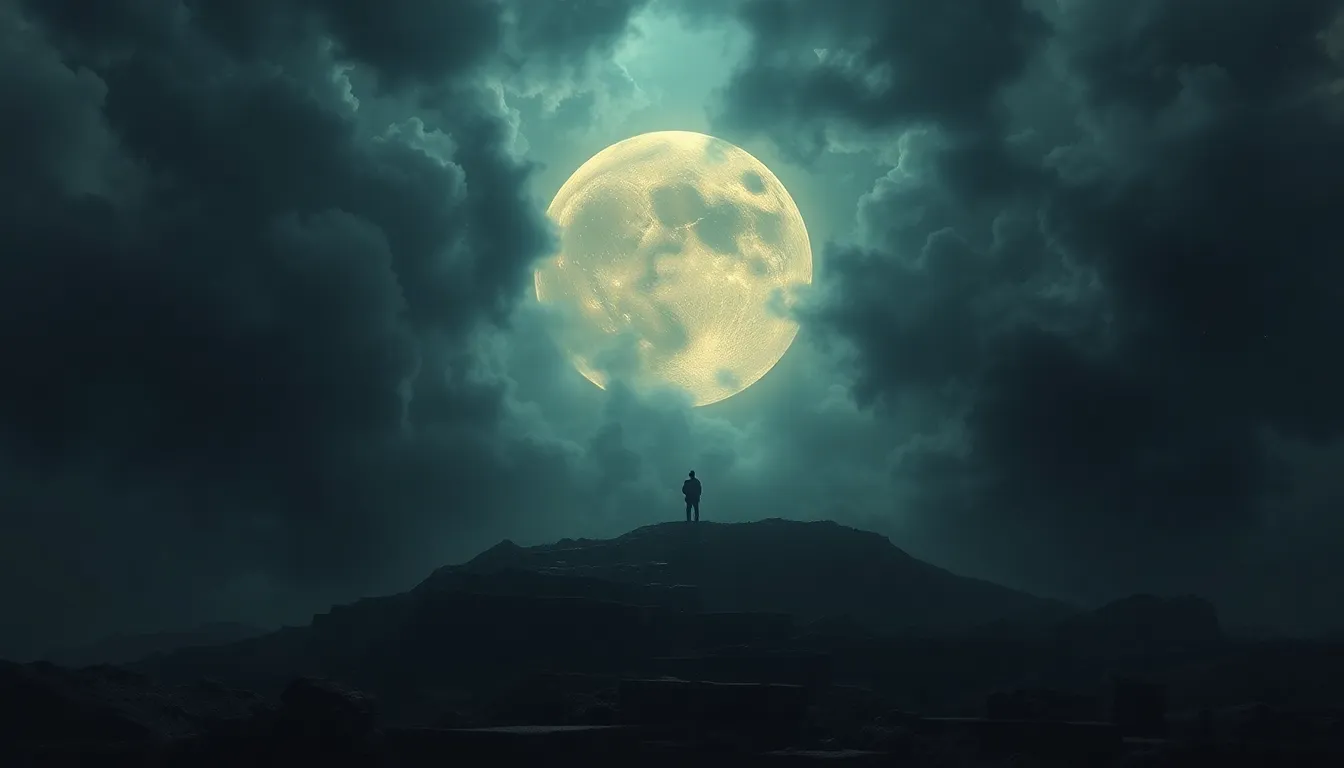The Role of Ancient Deities in Shaping Human Relationships
I. Introduction
Ancient deities have long been a cornerstone of human culture, embodying the values, beliefs, and customs of societies throughout history. These supernatural beings often represent fundamental human concerns, including love, family, and community. Their cultural significance is profound, influencing not only religious practices but also the way individuals interact with one another.
This article explores the intricate relationship between ancient deities and human interactions, examining how these divine figures have shaped our understanding of relationships and social dynamics. By delving into historical contexts, mythological narratives, and the evolution of worship, we can better appreciate the lasting impact of ancient deities on human relationships.
II. Historical Context of Ancient Deities
Ancient civilizations such as Mesopotamia, Egypt, Greece, and India each had their pantheon of deities that played crucial roles in shaping societal norms and values.
- Mesopotamia: Deities like Ishtar embodied love and war, reflecting the complexities of human experience.
- Egypt: Gods such as Isis and Osiris represented family and resurrection, emphasizing the importance of kinship.
- Greece: Figures like Zeus and Hera highlighted the dynamics of power and marriage.
- India: Deities like Vishnu and Lakshmi illustrated the balance between dharma and prosperity.
Mythology and religion were integral to these societies, providing explanations for natural phenomena and guiding moral conduct. Ancient deities often mirrored societal values, serving as both role models and cautionary tales.
III. Deities as Symbols of Love and Relationships
Many ancient deities are directly associated with love and relationships, serving as symbols for romantic ideals and social customs. Figures such as Aphrodite (Greek), Venus (Roman), and Eros (Greek) are prominent examples.
Myths surrounding these deities often illustrate the complexities of love:
- Aphrodite’s role in the Trojan War showcases the destructive power of love and desire.
- Venus and Mars represent the union of love and war, highlighting the duality of relationships.
- Eros, as the personification of romantic love, emphasizes the unpredictable nature of attraction.
The influence of these deities extended beyond mythology into romantic practices and social customs, shaping how love was understood and expressed in ancient cultures.
IV. Deities and Family Dynamics
Parental deities such as Hera (Greek), Demeter (Greek), and Isis (Egyptian) play significant roles in representing family structures and dynamics in mythology.
These deities often embody the virtues of motherhood and familial loyalty:
- Hera, as the goddess of marriage, represents the sanctity of marital bonds.
- Demeter’s search for her daughter Persephone illustrates the depths of maternal love and loss.
- Isis is celebrated for her devotion to her husband Osiris and her role as a nurturing mother.
Their stories reflect societal expectations regarding familial relationships and the importance of kinship in ancient societies.
V. Deities and Social Cohesion
Ancient deities also played a crucial role in fostering community bonding and social structures. They were central to various festivals and rituals that brought people together, reinforcing social ties.
Key aspects of this social cohesion include:
- Festivals dedicated to deities, such as the Eleusinian Mysteries in Greece, promoted unity among participants.
- Rituals often involved communal worship, strengthening bonds and shared identities.
- Belief in deities provided a common framework for understanding the world, fostering a sense of belonging.
Through shared rituals and beliefs, ancient societies cultivated a sense of unity and purpose.
VI. Gender Roles and Ancient Deities
The portrayal of male and female deities significantly influenced gender dynamics in ancient cultures. Male deities like Zeus and Mars often represented authority and power, while female deities such as Athena and Artemis embodied wisdom and independence.
Myths associated with these deities shaped societal perceptions of masculinity and femininity:
- Male deities often engaged in acts of heroism, shaping ideals of masculinity.
- Female deities frequently navigated complex narratives of autonomy and subservience, influencing views on femininity.
The impact of these portrayals on human relationships is profound, affecting power structures and social expectations within communities.
VII. Conflict and Resolution: Deities in Human Disputes
Deities associated with war and conflict, such as Ares (Greek), Mars (Roman), and Kali (Hindu), illustrate the complexities of human disputes and the quest for resolution.
Myths surrounding these deities often explore themes of conflict and reconciliation:
- Ares represents the chaotic nature of war, while Athena symbolizes strategic wisdom in conflict.
- Kali embodies both destruction and protection, highlighting the duality of conflict.
These narratives reveal how divine intervention was perceived as a means of resolving human disputes, reflecting the belief that deities influenced mortal affairs.
VIII. The Evolution of Deity Worship and Its Impact on Relationships
The worship of deities has undergone significant transformations throughout history. The transition from polytheism to monotheism marked a pivotal change in how divine relationships were understood.
Key points in this evolution include:
- The rise of monotheistic religions often led to a more individualized understanding of the divine.
- Modern interpretations of ancient deities have emerged, often blending historical practices with contemporary beliefs.
This evolution has profound implications for human relationships, as the nature of divine influence on personal and communal interactions has shifted over time.
IX. Comparative Analysis of Deities Across Cultures
In examining deities across various cultures, we uncover both similarities and differences that reflect universal themes in human relationships.
For example, love and war are common motifs found in the myths of many civilizations:
- Aphrodite and Venus symbolize love in Greek and Roman cultures, respectively.
- Ares and Mars embody the concept of war across different cultures.
These case studies highlight how diverse cultures address similar themes in their mythologies, emphasizing the shared human experience.
X. Conclusion
Ancient deities have played a significant role in shaping human relationships throughout history. From love and family dynamics to social cohesion and conflict resolution, these divine figures have provided frameworks for understanding the complexities of human interactions. As we continue to explore the narratives and practices associated with these deities, we gain valuable insights into the values and beliefs that have influenced societies across time and space.



